- Home
- Linwood Barclay
The Accident Page 4
The Accident Read online
Page 4
Were her actions in some way deliberate? Had she wanted to die? Had she secretly been harboring some kind of death wish?
I needed to know. I ached to know. And there was no way to make that ache go away.
Maybe I should have felt sorry for Sheila. Pitied her because, for reasons I couldn’t begin to comprehend, she’d done this astonishingly stupid thing and paid the ultimate price for her bad judgment.
But I didn’t have it in me. All I felt was frustration and rage over what she’d done to those she’d left behind.
“It’s unforgivable,” I whispered to her things. “Absolutely un—”
“Dad?”
I spun around.
Kelly was standing by the bed in a pair of jeans and sneakers and a pink jacket, a backpack slung over one shoulder. She had pulled her hair back into a ponytail, secured with a red scrunchie thing.
“I’m ready,” she said.
“Okay,” I said.
“Didn’t you hear me? I called you, like, a hundred times.”
“Sorry.”
She looked past me into her mother’s closet and frowned accusingly. “What are you doing?”
“Nothing. Just standing here.”
“You’re not thinking about throwing out Mom’s things, are you?”
“I wasn’t really thinking anything. But, yeah, I’ll have to decide what to do with her clothes at some point. I mean, by the time you could wear them they’ll be out of fashion.”
“I don’t want to wear them. I want to keep them.”
“Okay, then,” I said gently.
That seemed to satisfy her. She stood there a moment and then said, “Can you take me now?”
“You’re sure you want to go?” I asked. “You’re ready for this?”
Kelly nodded. “I don’t want to sit around the house with you all the time.” She bit her lower lip, and added, “No offense.”
“I’ll get my coat.”
I went downstairs and grabbed my jacket from the hall closet. She followed me. “You got everything?”
“Yup,” Kelly said. “Pajamas?”
“Yes.”
“Toothbrush?”
“Yes.”
“Slippers?”
“Yes.”
“Hoppy?” The furry stuffed bunny she still took to bed with her.
“Daaad. I have everything I need. When you and Mom went away, she was always reminding you what to bring. And it’s not the first time I’ve ever gone on a sleepover.”
That was true. It was just the first time she’d been away overnight since her mother had gotten herself killed in a stupid DUI accident.
It would be a good thing for her to get out, be with her friends. Hanging around me, that couldn’t be good for anyone.
I forced a smile. “Your mom would say to me, have you got this, have you got that, and I’d say, yeah, of course, you think I’m an idiot? And half the things she said, I’d forgotten, and I’d sneak back into the bedroom and get them. One time, we went away and I forgot to pack any extra underwear. How dumb, huh?”
I thought she might return the smile, but no dice. The corners of her mouth hadn’t gone up much in the last sixteen days. Sometimes, when we were snuggled up on the couch watching TV, something funny would happen, she’d start to laugh. But then she’d catch herself, as though she didn’t have the right to laugh anymore, that nothing could ever be funny again. It was as though when something made her start to feel happy, she felt ashamed.
“Got your phone?” I asked once we were in the truck. I’d bought her a cell phone since her mother’s death so she could call me anytime. It also meant I could keep tabs on her, too. I’d thought, when I got it, what an extravagance a phone was for a kid her age, but soon realized she was far from unique. This was Connecticut, after all, where by age eight some kids already had their own shrink, let alone a phone. And a cell phone wasn’t just a phone these days. Kelly had loaded it with songs, taken photos with it, even shot short stretches of video. My phone probably did some of these things, too, but mostly I used it for talking, and taking pictures at job sites.
“I have it,” she said, not looking at me.
“Just checking,” I said. “If you’re uncomfortable, if you want to come home, it doesn’t matter what time it is, you can call me. Even if it’s three in the morning, if you’re not happy with how things are going I’ll come over and—”
“I want to go to a different school,” Kelly said, looking at me hopefully.
“What?”
“I hate my school. I want to go someplace else.”
“Why?”
“Everyone there sucks.”
“I need more than that, honey.”
“Everybody’s mean.”
“What do you mean, everybody? Emily Slocum likes you. She’s having you for a sleepover.”
“Everybody else hates me.”
“Tell me, exactly, what’s happened.”
She swallowed, looked down. “They call me …”
“What, sweetheart? What do they call you?”
“Boozer. Boozer the Loser. You know, because of Mom, and the accident.”
“Your mother was not a—she was not a drunk, or a boozer.”
“Yes, she was,” Kelly said. “That’s why she’s dead. That’s how come she killed the other people. Everyone says so.”
I felt my jaw tighten. And why wouldn’t everyone be saying that? They’d seen the headlines, the six o’clock news. Three Dead in Milford Mother DUI.
“Who’s calling you this name?”
“It doesn’t matter. If I tell you, you’ll go see the principal and they’ll get called down and everyone will have to have a talk and I’d rather just go someplace else. A school where there’s nobody that Mom killed.”
The two people who’d died in the car that hit Sheila’s were Connor Wilkinson, thirty-nine, and his ten-year-old son Brandon.
As if fate hadn’t been cruel enough, Brandon had been a student at Kelly’s school.
Another Wilkinson boy, Brandon’s sixteen-year-old brother Corey, had survived. He’d been sitting in the back seat, belted in. He was looking forward through the front windshield and saw Sheila’s Subaru parked across the off-ramp just as his father screamed “Jesus!” and hit the brakes, but not in time. Corey claimed to have seen Sheila, just before the impact, asleep behind the wheel.
Connor had not bothered with his seatbelt, and half of him was on the car hood when the police got there. His body had been taken away by the time I’d arrived, as had Brandon’s. The boy had been wearing his seatbelt, but had not survived his injuries.
He’d been in sixth grade, three years ahead of Kelly.
I’d had a feeling things would be rough for her when she got back to school. I’d even gone in to talk to the principal. Brandon Wilkinson had been a popular kid, an A-plus student, a great soccer player. I was worried some students might want to take it out on Kelly, that her mother was being blamed for getting one of the school’s most-liked kids killed.
I got a call Kelly’s first day back at school. Not because of something someone had said to her, but because of something Kelly had done. One of her classmates had asked her if she got to see her mother’s body in the car before they pulled it out, whether she’d been decapitated or anything cool like that, and Kelly’d stomped on the kid’s foot. Hurt so bad the girl had to be sent home.
“Maybe Kelly’s not ready to resume school,” the principal had told me. I’d had a word with Kelly, even made her demonstrate for me what she’d done. She’d stepped around the front of this other girl, raised her knee, then driven her heel into the top of her classmate’s foot. “She had it coming,” Kelly’d said.
She promised not to do anything like that again, and returned to school the following day. When I didn’t hear of any further incidents, I’d hoped things were okay. At least as well as could be expected.
“I’m not putting up with this,” I told her now. “I’m going into that office
on Monday and those little bastards who are saying these things to you are—”
“Can’t I just go to another school?”
My hands tightened on the steering wheel as we drove down Broad Street, through the center of town, past the Milford Green. “We’ll see. I’ll look into it on Monday, okay? After the weekend?”
“It’s always ‘we’ll see.’ You say you will but you won’t.”
“If I say I’m going to do it, I’ll do it. But it means you’ll be with kids who don’t live in your neighborhood.”
She gave me a look. The “duh” was unspoken.
“Okay, that’s the point, I get it. And that might seem like a good plan now, but what about in six months, or a year? You end up cutting yourself off from your own community.”
“I hate her,” Kelly said under her breath.
“Who? Is it a girl who’s been calling you names?”
“Mom,” she said. “I hate Mom.”
I swallowed hard. I’d tried hard to keep my feelings of anger to myself, but why was I surprised Kelly felt betrayed as well? “Don’t say that. You don’t mean that.”
“I do. She left us, and she got in that dumb accident so everybody hates me.”
I squeezed the steering wheel. If it had been wood, it would have snapped. “Your mother loved you very much.”
“Then why’d she do something so stupid and ruin my life?” Kelly asked.
“Kelly, your mother wasn’t stupid.”
“Wasn’t getting drunk and parking in the middle of the road stupid?”
I lost it.
“Enough!” I made a fist and bounced it off the steering wheel. “Goddamn it, Kelly, you think I have the answers to everything? You don’t think I’m going nuts trying to figure out why the hell your mother would do such a dumb thing? You think this is easy for me? You think I like that your mother left me to raise you on my own?”
“You just said she wasn’t stupid,” Kelly said. Her lip was quivering.
“Well, okay, what she did, that was stupid. Beyond stupid. It was as stupid a thing as anyone could do, okay? And it doesn’t make a damn bit of sense, because your mother would never, ever, drink and drive.” I banged the steering wheel again.
I could imagine Sheila’s reaction, if she’d heard me say that. She’d have said I knew that wasn’t exactly true.
It was years ago. We weren’t even engaged. There’d been a party. All the guys from work, their wives, girlfriends. I’d had so much to drink I could barely stand. There was no way I could drive. Sheila probably would have failed a breath test, but she was in way better shape to drive than I was.
But it wasn’t fair to count that. We were younger then. Stupider. Sheila’d never have done anything like that now.
Except she had.
I looked over at Kelly, saw her eyes welling up with tears.
“If Mom would never do that, why did it happen?” she asked.
I pulled the truck over to the side of the road. “Come here,” I said.
“My seatbelt’s on.”
“Take the damn thing off and scoot over here.”
“I’m fine here,” she said, hugging the door. The best I could do was reach over and touch her arm.
“I’m sorry,” I told my daughter. “The thing is, I just don’t know. Your mother and I spent a lot of years together. I knew her better than anyone else in the world, and I loved her more than anyone else in the world, at least until you came along, and then I loved you just as much. What I’m saying is, this doesn’t make any more sense to me than it does to you.” I stroked her cheek. “But please, please don’t say you hate her.” It made me feel guilty when she said it, because I believed my feelings were rubbing off on her.
I was furious with Sheila, but I didn’t want to turn her daughter against her.
“I’m just so mad at Mom,” Kelly said, looking out her window. “And it makes me feel all sick inside, to be mad, when I’m supposed to be sad.”
THREE
I put the truck back into drive. A short distance later I hit the blinker and turned down Harborside Drive. “Which house is Emily’s again?”
I should have been able to spot it. Emily’s mother, Ann Slocum, and Sheila had met six or seven years ago when they’d both signed up the girls for an infants’ swim class. They traded tales of being new mothers as they struggled to get their girls in and out of their bathing suits, and had kept in touch since. Because we lived not too far from each other, the girls ended up in the same class at school.
Chauffeuring Kelly back and forth to Emily’s house had usually been a duty that fell to Sheila, so I didn’t instantly know which place was the Slocums’.
“That one,” Kelly said, pointing.
Okay, I knew this house. I’d dropped Kelly here before. A one-story, built mid-sixties, would be my guess. It could have been a nice place if it got some attention. Some of the eaves were sagging, the shingles looked to be nearing the end of their lifespan, and a few of the bricks near the top of the chimney were crumbling from moisture getting into them. The Slocums weren’t alone in putting off household repairs. These days, with money tight, people were letting things go until they couldn’t be ignored any longer, and sometimes even then they weren’t dealing with them. A leaky roof could be fixed with a pail a lot cheaper than new shingles.
Ann Slocum’s husband, Darren, was living on a cop’s salary, which wasn’t huge, and probably even less than it used to be since the town started clamping down on overtime. Ann had lost her job in the circulation department at the New Haven paper sixteen months ago. Even though she’d found some other ways to make a living, I could imagine money was tight.
For about a year, she’d been running these so-called “purse parties” where women could buy imitation designer bags for a fraction of the price of the real ones. Sheila had turned our place over to Ann one night not long ago to run one. It was quite an event, like one of those Tupperware things—or at least what I imagine one of those Tupperware things are like.
Twenty women invaded the house. Sally, from work, came, as well as Doug Pinder’s wife, Betsy. I was particularly surprised when Sheila’s mother, Fiona, showed up, with her husband Marcus in tow. Fiona could afford a genuine Louis Vuitton if she wanted one, and I couldn’t see her carrying around a bag that wasn’t the real deal. But Sheila, worried that Ann would get a poor turnout, had begged her mother to come. It was Marcus who finally persuaded Fiona to make the effort.
“Be sociable,” he’d apparently told her. “You don’t have to actually buy one. Show up and support your daughter.”
I hated to be cynical, but I couldn’t help wondering whether his motives had little to do with making his stepdaughter happy. An event like this, you had to figure there’d be a lot of women there, and Marcus liked to check out the ladies.
Marcus and Fiona got to our place first, and when the women started arriving, he made a point of greeting them as they came through the door, introducing himself, offering to get each a glass of wine, making sure they all had a place to sit as they began to drool over leather and fake labels. His antics appeared to embarrass Fiona. “Stop making a fool of yourself,” she’d snapped, taking him aside at one point.
Once Ann’s sales pitch got under way and Marcus and I had retreated to the back deck with a couple of beers, he said, somewhat defensively, “Don’t worry, I’m still madly in love with your mother-in-law. I just like women.” He smiled. “And I think they like me.”
“Yeah,” I replied. “You’re a stud muffin.”
Ann did pretty well that night. Made a couple of thousand dollars—even knockoff purses could run several hundred bucks—and for hosting the event, Sheila got to pick any bag she wanted.
Even if the Slocums couldn’t afford repairs to their house, purses and policing were paying well enough for Ann to drive a three-year-old Beemer sedan, and Darren had a Dodge Ram pickup that gleamed red. Only the pickup was in the driveway as we approached the house.
&nbs
p; “Is Emily having any other friends sleep over?” I asked Kelly.
“Nope. Just me.”
We stopped at the curb.
“You okay?” I asked her.
“I’m okay.”
“I’ll walk you to the door.”
“Dad, you don’t have—”
“Come on.”
Kelly dragged her backpack, adopting a condemned-prisoner gait as we approached the house.
“Don’t worry,” I said. There was a For Sale sign with a phone number stuck to the inside back window of Darren Slocum’s pickup. “It’ll be fun, once you’ve ditched your dad.”
I was about to ring the bell when I heard a car pull in to the driveway. It was Ann in her Beemer. When she got out of the car, she grabbed a Walgreens bag.
“Hey!” she called, more to Kelly than me. “I just got some snacks for your sleepover.” Then she laid her eyes on me. “Hi, Glen.” Only two words, but they were laced with sympathy.
“Ann.”
The front door opened. It was Emily, her blonde hair pulled back into a ponytail just like Kelly’s. She must have spotted us through the window. She squealed at the sight of Kelly, who barely had time to mumble a farewell to me as she and her friend ran off.
“So much for the tearful goodbye,” I said to Ann.
She smiled, walking past me and taking me by the arm into the front hall.
“Thanks for taking Kelly tonight,” I said. “She’s very excited.”
“It’s no trouble.”
Ann Slocum was in her mid-thirties, petite, with short black hair. Stylish jeans, a blue satiny T and matching bracelets. An outfit that looked simple enough but probably set her back more than what a new Makita rotary hammer, with variable speed and all the accessories, would have cost me. She had nice muscle tone in the arms, a flat stomach beneath her small breasts. She looked like someone who worked out, but I recalled Sheila saying once that Ann had dropped her gym membership. I supposed one could do that sort of thing from home. Ann gave off something, in the way she carried herself, the way she tilted her head when she looked at you, the way you knew she knew you were looking at her when she walked away, that was like a scent. She was the kind of woman who, if you didn’t keep your head about you, you might find yourself wanting to do something stupid with.

 Chase
Chase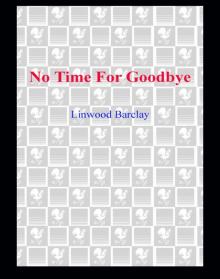 No Time for Goodbye
No Time for Goodbye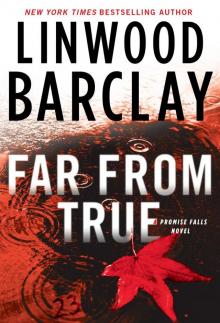 Far From True
Far From True Lone Wolf
Lone Wolf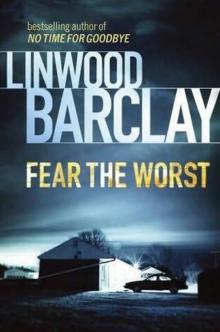 Fear the Worst
Fear the Worst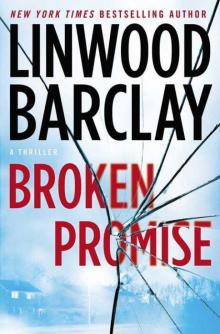 Broken Promise
Broken Promise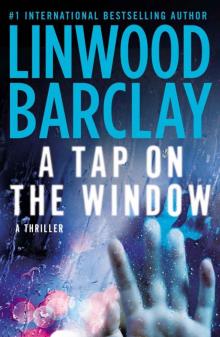 A Tap on the Window
A Tap on the Window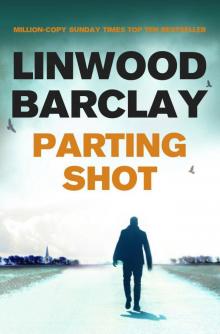 Parting Shot
Parting Shot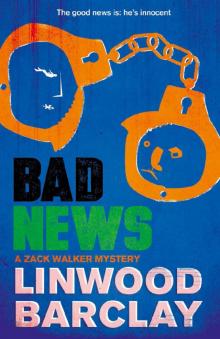 Bad News
Bad News Too Close to Home
Too Close to Home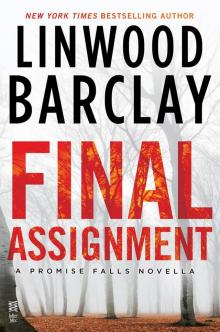 Final Assignment
Final Assignment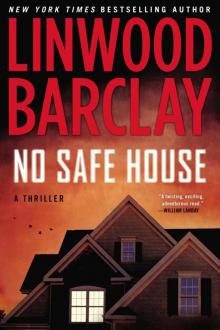 No Safe House
No Safe House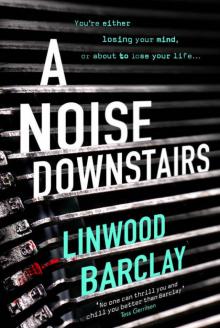 A Noise Downstairs
A Noise Downstairs Bad Guys
Bad Guys The Accident
The Accident Stone Rain
Stone Rain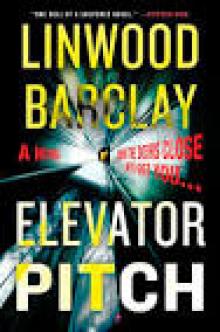 Elevator Pitch
Elevator Pitch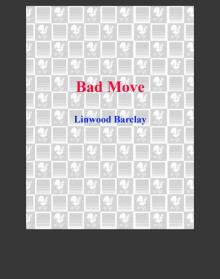 Bad Move
Bad Move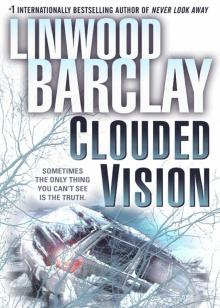 Clouded Vision
Clouded Vision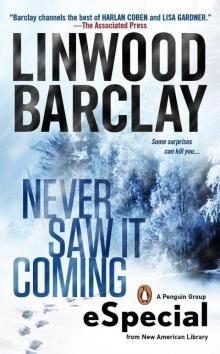 Never Saw It Coming
Never Saw It Coming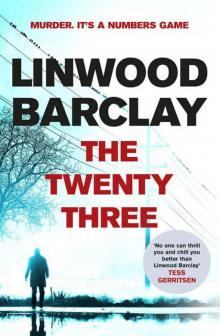 The Twenty-Three
The Twenty-Three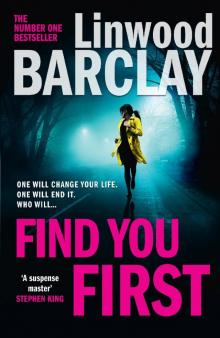 Find You First
Find You First Never Look Away
Never Look Away Elevator Pitch (UK)
Elevator Pitch (UK)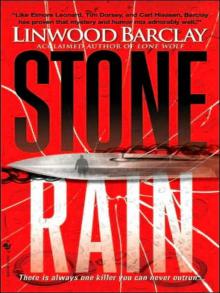 Stone Rain zw-4
Stone Rain zw-4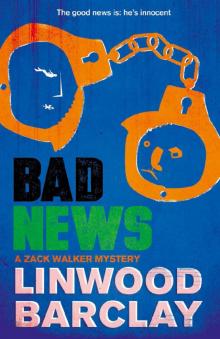 Bad News: A Zack Walker Mystery #4
Bad News: A Zack Walker Mystery #4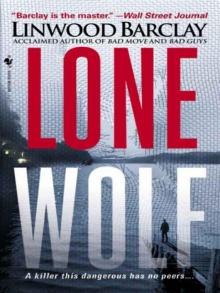 Lone Wolf zw-3
Lone Wolf zw-3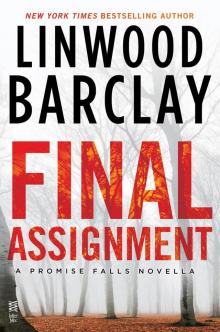 Final Assignment: A Promise Falls Novella
Final Assignment: A Promise Falls Novella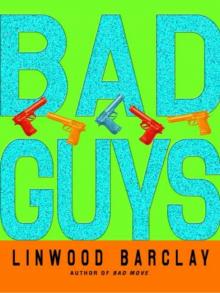 Bad Guys zw-2
Bad Guys zw-2 Never Saw It Coming: (An eSpecial from New American Library)
Never Saw It Coming: (An eSpecial from New American Library) Never Look Away: A Thriller
Never Look Away: A Thriller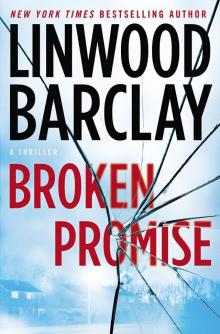 Broken Promise: A Thriller
Broken Promise: A Thriller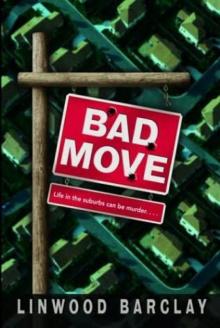 Bad Move zw-1
Bad Move zw-1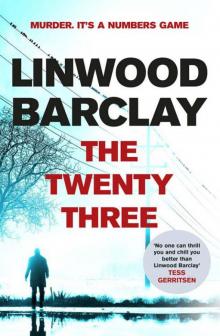 The Twenty-Three 3 (Promise Falls)
The Twenty-Three 3 (Promise Falls)